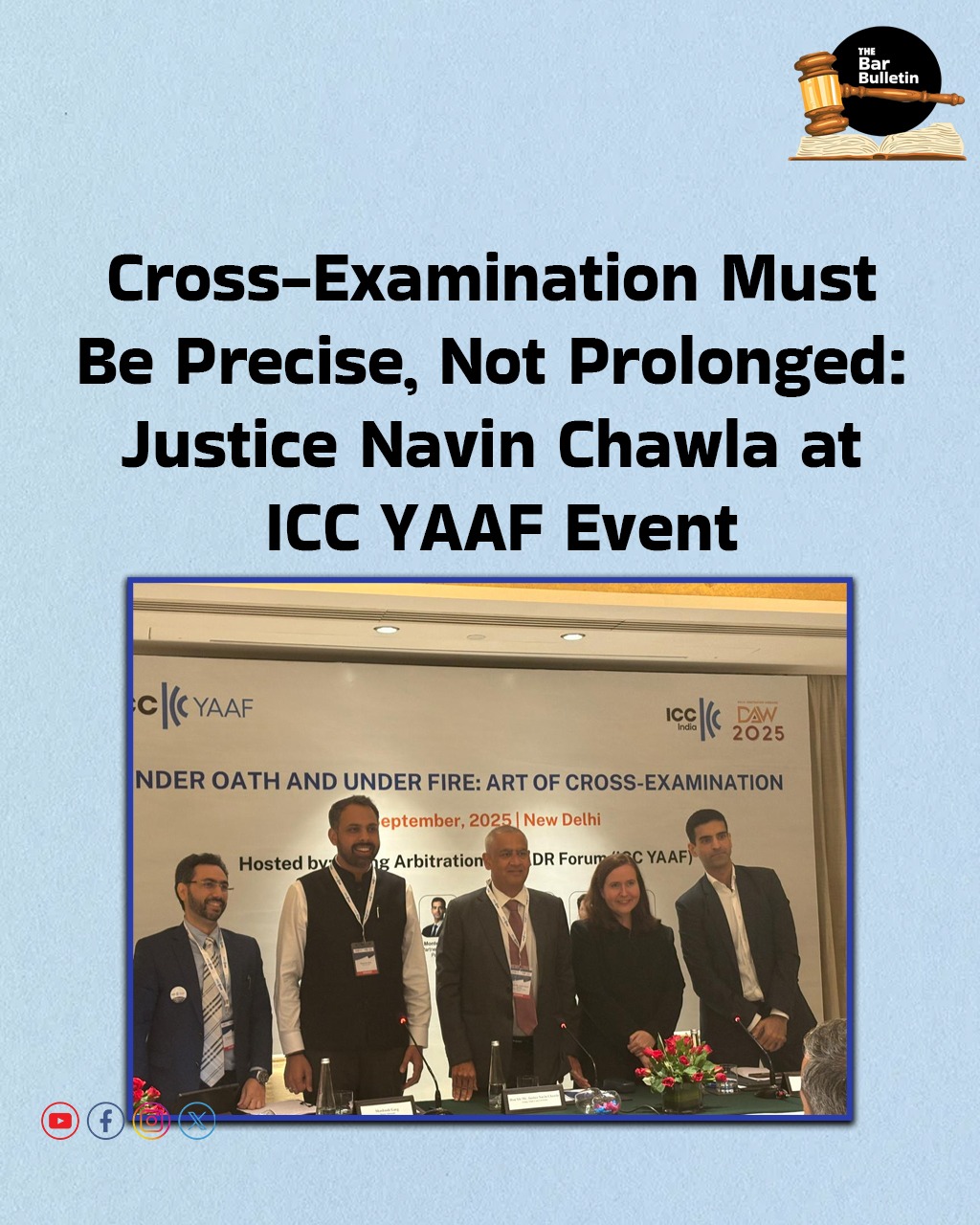The International Chamber of Commerce Young Arbitration & ADR Forum (ICC YAAF) hosted its flagship programme “Under Oath and Under Fire: The Art of Cross-Examination” at Mountbatten Oberoi, New Delhi. The event brought together judges, senior advocates, practitioners, and experts for an interactive evening of training and discussion on effective cross-examination techniques in arbitration.
The programme began with a training session conducted by Rebecca James, Partner at Linklaters, and Varuna Bhanrale, Partner at Trilegal, moderated by Jayashree Paramar. The session provided participants with practical insights on structuring cross-examination, preparing for witness unpredictability, and adopting best practices in advocacy.
Dr. Shashwat Bajpai, ICC YAAF Representative for South Asia, opened the session by observing that “cross-examination is the art of asking simple questions in order to get complicated people to give simple answers.”
This was followed by a panel discussion chaired by Justice Navin Chawla of the Delhi High Court and moderated by Dr. Bajpai. The panel featured Senior Advocate Shashank Garg, Montek Mayal, Partner at Osborne Partners, and Rebecca James.
Justice Chawla emphasized the need for a shift in mindset in domestic arbitration, pointing out that many cases are primarily document-driven yet continue to involve unnecessarily prolonged oral examinations. He noted that arbitral tribunals should play a more active role in streamlining proceedings, while also acknowledging that in certain matters, such as corruption allegations, oral evidence remains critical. He also stressed that effective cross-examination requires focus, restraint, and clarity, rather than lengthy and unfocused questioning.
Shashank Garg distinguished between strategies for fact witnesses and expert witnesses, highlighting that while the former requires mastery of case facts, the latter demands scrutiny of methodologies, assumptions, and calculations. Montek Mayal added that preparation and simplicity are key when cross-examining experts, cautioning that over-questioning or imprecise questioning can dilute the effectiveness of cross-examination.
When asked how institutional rules should handle cross-examination, Rebecca James said that addressing cross-examination is not the role of institutional rules and that detailed matters of evidence should be directed by guidelines like the IBA Rules and the Tribunal’s orders. She also recommended leveraging AI to improve efficiency. On the question of balancing robust questioning with fairness, she shared practical advice drawn from mock depositions. She emphasized techniques to push a witness into answering previously avoided questions often by narrowing responses to “yes” or “no.” On the challenge of losing control of a witness, she highlighted the strategic use of silence as a key pointer.
Montek Mayal, responding to how AI tools can assist counsel in reviewing large document sets for cross-examination, noted their efficiency, personally citing an example of reducing an eight-hour task to just one hour. Drawing on his own experience as a witness, he observed that expert witnesses “love to talk,” but cautioned against allowing them to go too far, lest they undo prior admissions secured during examination.
The session concluded with a discussion on common pitfalls such as over-reliance on experts, poorly framed compound questions, and failure to address damaging testimony in time that can undermine arbitral proceedings. In his concluding remarks, Dr. Bajpai reinforced that the true art of cross-examination lies in preparation, precision, and the discipline to stop at the right moment.
About ICC YAAF
The ICC Young Arbitration & ADR Forum (ICC YAAF) is a global platform for young practitioners to connect, share knowledge, and learn from leading voices in dispute resolution.



